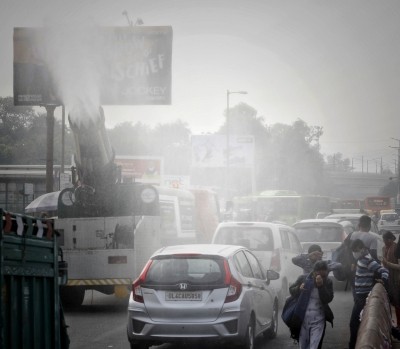
New Delhi, Stating that forecasting systems along with supporting local actions helped prevent extremely severe air pollution episodes in Delhi in the winter of 2021, a study released on Thursday suggested that to further reduce air pollution episodes next winter, the forecasting systems would need to provide more accurate predictions.
The independent study -- �Improving Air Quality Management Through Forecasts: A Case Study of Delhi's Air Pollution of Winter 2021' -- by the Council on Energy, Environment and Water (CEEW), a non-profit think-tank, said that short-term emergency measures such as halting operations of power plants, construction activities and plying of trucks were introduced based on the forecasts, which are basically early warning systems.
Further, the CEEW study said the implementation of the Graded Response Action Plan (GRAP) must be based strictly on modelled source contributions obtained from forecasts and timed accordingly.
"This would eliminate the need for ad-hoc emergency directions to restrict various activities," the study pointed out.
The findings of the study reinforce the need for strengthening both long-term and emergency actions aimed at curbing emissions from these sectors.
"Additionally, with multiple forecasting systems, efforts should be made to encourage dialogue between different scientific groups and reconcile differences in varying estimates from the different groups," it said.
"Existing forecasts have shown potential for accurate air quality prediction and should be used actively for emission control as well as emergency measures to restrict various activities. Further, the authorities should consider using social media platforms to inform residents about air pollutants, contributing sources and related forecasts. This could help limit human exposure and activity levels in the city," said Adeel Khan, research analyst, CEEW.
The state governments of Delhi and its neighbouring states should also conduct surveys on the prevalence of biomass burning for cooking and heating purposes, and offer alternative solutions based on clean fuel, he suggested.


.jpeg)

